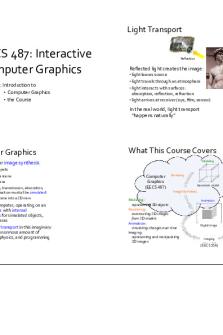Findings - Lecture notes 1 PDF

| Title | Findings - Lecture notes 1 |
|---|---|
| Course | Fluid mechanics (chemical engineering) |
| Institution | Ghulam Ishaq Khan Institute of Engineering Sciences and Technology |
| Pages | 3 |
| File Size | 145 KB |
| File Type | |
| Total Downloads | 1 |
| Total Views | 140 |
Summary
qwe...
Description
Approximate parental income:
The net parental monthly income varied significantly across the responders. It may be likely that the difference in the socio-economic background of the students may account for this finding mainly due to the fact that the students studying in private institutions have parents with a higher income. So, the result of our survey indicates that 43.7% of the students have parents with income between PKR 100,000-PKR 150,000, which is the largest share of the responders. Furthermore, 29.8% of students have parents with an income of PKR 50,000-PKR 100,000. Finally, 7.9% of the students have parents with income higher that PKR 200,000 which obviously that they are from the upper-class and are from private institutions.
Do you have any parent(s) who is a medical doctor?
The nature of the responses of this question was generally very straight forward. 83.4% of the students don’t have parent(s) who is a medical doctor while 16.6% of the students do have parent(s) who are a medical doctor. This question is of critical importance as students with parents as medical doctors are likely to have more knowledge about how to respond to approaches made by pharmaceutical companies
as their parents may have faced the same situation during their time as a student. While on the other hand, students who do not have parents who are medical doctors may have no comprehension regarding marketing techniques of pharmaceutical companies.
Do you have at least one parent working for/in the pharmaceutical industry?
The responses to this question was very one sided as 94.7% of the students don’t have parents working in the pharmaceutical industry while 5.3% of the students have parents working in the pharmaceutical industry. It should also be noted that the 5.3% of students might also have both parents working in the pharmaceutical industry. The substance of this question is quite similar to the last one due to the fact that students with parents working in the pharmaceutical industry might be more exposed about the marketing techniques deployed by the pharmaceutical industry.
Does your medical college offer compulsory courses in medical ethics?
Around 66.2% of students are studying in medical universities where there is not a compulsory course in medical ethics offered while 33.8% of students are studying in a medical university where a compulsory course in medical ethics is being offered. This is an alarming statistic that a vast majority of the students have not studied about medical ethics which shows the lackluster standards of the universities in Pakistan and the lack of knowledge in students about medical and professional ethics....
Similar Free PDFs

Findings - Lecture notes 1
- 3 Pages

Lecture notes, lecture 1
- 9 Pages

Lecture notes, lecture 1
- 4 Pages

Lecture-1-notes - lecture
- 1 Pages

Lecture notes- Lecture 1
- 20 Pages

Lecture notes, lecture 1
- 4 Pages

Lecture-1 - Lecture notes 1
- 6 Pages

Lecture notes, lecture 1
- 9 Pages

1 - Lecture notes 1
- 11 Pages

1 - Lecture notes 1
- 5 Pages

1 - Lecture notes 1
- 1 Pages

1 - Lecture notes 1
- 24 Pages

Lecture notes, lecture 1-9
- 25 Pages

Lecture notes, lecture scratch 1
- 7 Pages

Lecture notes, lecture 1-7
- 17 Pages
Popular Institutions
- Tinajero National High School - Annex
- Politeknik Caltex Riau
- Yokohama City University
- SGT University
- University of Al-Qadisiyah
- Divine Word College of Vigan
- Techniek College Rotterdam
- Universidade de Santiago
- Universiti Teknologi MARA Cawangan Johor Kampus Pasir Gudang
- Poltekkes Kemenkes Yogyakarta
- Baguio City National High School
- Colegio san marcos
- preparatoria uno
- Centro de Bachillerato Tecnológico Industrial y de Servicios No. 107
- Dalian Maritime University
- Quang Trung Secondary School
- Colegio Tecnológico en Informática
- Corporación Regional de Educación Superior
- Grupo CEDVA
- Dar Al Uloom University
- Centro de Estudios Preuniversitarios de la Universidad Nacional de Ingeniería
- 上智大学
- Aakash International School, Nuna Majara
- San Felipe Neri Catholic School
- Kang Chiao International School - New Taipei City
- Misamis Occidental National High School
- Institución Educativa Escuela Normal Juan Ladrilleros
- Kolehiyo ng Pantukan
- Batanes State College
- Instituto Continental
- Sekolah Menengah Kejuruan Kesehatan Kaltara (Tarakan)
- Colegio de La Inmaculada Concepcion - Cebu
